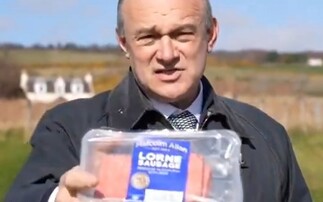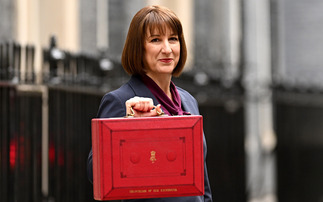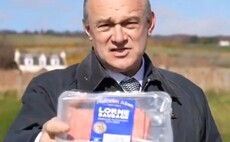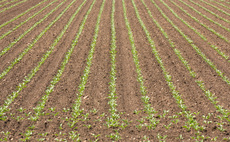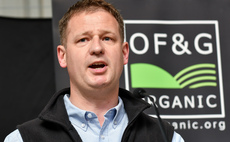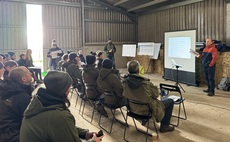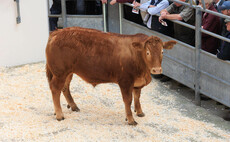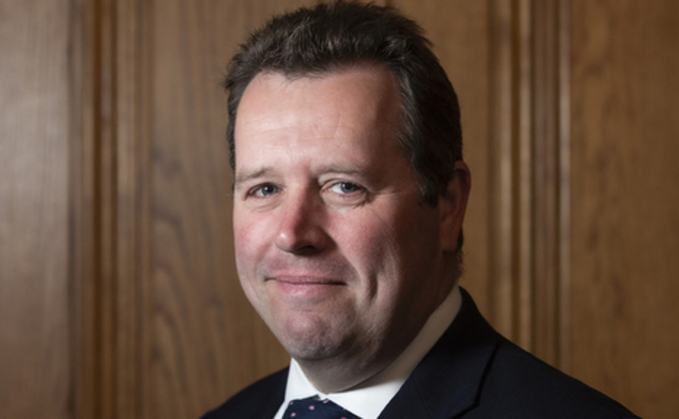
Farming Minister Mark Spencer said the Government wants to 'empower farmers' by providing opportunities and funding in robotics and automation
Farming Minister Mark Spencer has confirmed the Government will increase funding to make the UK the world's leading ‘agri-tech hub'.
Mr Spencer, speaking at World Agri-Tech Innovation Summit on Wednesday, said £12.5 million - part of Defra's £270 million Farming Innovation Programme - would be invested into 19 automation and robotic projects with the aim of empowering farmers to ‘boost sustainable farming, increase productivity and improve the UK's food security'.
We have had a great two days at the Innovation Summit, speaking with collaborators and identifying new growth opportunities to accelerate agri-tech innovation for the UK and beyond 🌍📈
— Agri-Tech Centres UK (@AgriTechCentres)
The Farming Minister reiterated his commitment further in overseeing the transformation of the UK into a world-leading agri-tech hub with Defra already backing £120 million worth of industry-led research and development into agriculture and horticulture since 2021.
"�������� are always forward-looking, and innovation is key to driving a resilient, productive and sustainable agriculture sector which puts food on our tables," the former House of Commons Chief Whip added.
🌾 Leading the way in Agri-Tech
— Innovate UK (@innovateuk)
Innovate UK CEO, Indro Mukerjee, delivers a keynote at the Innovation Summit in to 900 international industry leaders. | | |
"The government stands firmly behind agri-tech innovation as the cornerstone of modern farming practices.
"By providing opportunities, funding and a supportive ecosystem within the sector, we aim to empower farmers, drive innovation and create a sustainable and prosperous future for agriculture across the UK."
See also: From the editor: 'no doubt the Government is on a charm offensive with the farming fraternity'
Mr Spencer added the Genetic Technology (Precision Breeding) Act could also unlock new technology to improve the productivity and resilience of crops, while supporting farmers to 'attract investment and generate revenue'.
Defra confirmed progress had already been made in robotics and automation technology which had helped farmers to predict strawberry yield, increase vineyard productivity and optimise harvesting schedules.
See also: Defra offers leniency with CS applications
Dr Katrina Hayter, director at Innovate UK - which helps businesses develop the new products, services and processes they need to grow - said robotics and automation plays a crucial role in addressing the problems to feed a growing population through sustainable practices.
"By fostering innovation and research, we empower our farmers, growers, foresters and businesses to not only enhance productivity and economic growth but also to lead the way in sustainable practices," Ms Hayter added.
See also: Defra refuses to give date on Slurry Grant
"These projects are a testament to our commitment to improving environmental outcomes and reducing carbon emissions, ensuring a brighter and more sustainable future for our agricultural and horticultural communities."
Muddy Machines Ltd and Outfield Technologies - part of the nineteen companies to receive a share of Defra's £12.5m funding - said they were delighted to have received Government support.
See also: Defra opens online checker for calf housing grant
Oli Hilbourne, chief executive and co-founder at Outfield Technologies - which provides accurate fruit counts to manage to improve efficiency and sales - said the funding would help the company branch into the wine industry.
"It is a great example of the strength of UK innovation funding, bringing together technology companies, growers and academic partners to solve specific industry challenges," Mr Hilbourne added.
See also: NFU 'welcomes' Defra food summit
"The UK's wine industry is growing rapidly, learning best practice from other wine growing regions.
"This is an opportunity to set the international standard and export our knowledge to the rest of the wine growing world.
"We are really excited to get started on the project and work with UK vineyards to drive productivity increases."
See also: Liberal Democrats commit to 70% British Food consumption








